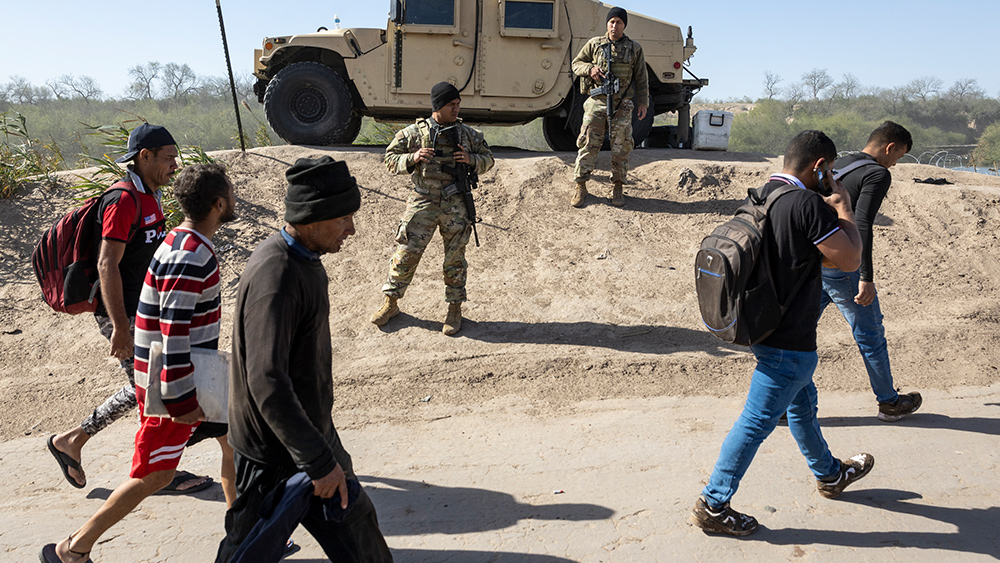
The matter stems from an April 2019 executive order issued by King County, Wash.-executive Dow Constantine prohibiting fixed base operators at a county airfield near Seattle from helping U.S. Immigration and Customs Enforcement (ICE) fill charter flights with illegal aliens in order to deport them.
Constantine prohibited King County International Airport from supporting what she described as "the transportation and deportation of immigration detainees in the custody of Immigration and Customs Enforcement, either traveling within or arriving or departing the United States or its territories."
Since the airport in question is located right next to a major facility in Seattle, Constantine's ruling effectively halted deportation efforts in the area, resulting in illegal aliens flooding the Seattle area without consequence.
(Related: Incoming Trump border czar Tom Homan just revealed his plans for investigating foreign nationals and the non-governmental organizations [NGOs} that are dueling their illegal entry into the United States.)
Courts side with Trump
At the time, the Trump administration sued, arguing that Constantine's order violates the Supremacy Clause's intergovernmental immunity doctrine as well as a World War II-era Instrument of Transfer agreement allowing the federal government to use the King County airport.
A district court agreed with the Trump administration, ruling in favor of the federal government. King County responded by appealing to the Ninth Circuit, the panel of which affirmed the district court's summary judgment that Constantine's order violated the Supremacy Clause and the Instrument of Transfer agreement.
Judges Daniel Bress, Michael Hawkins, and Richard Clinton wrote in their 29-page ruling that the federal government has Article III standing to sue for "two related concrete and individualized injuries."
The first one is "the inability to conduct the charter flights – which has increased ICE’s operational costs – constituted a de facto injury that affected the United States in a particularized, individual way," and the second is "an imminent risk of future injury from the Executive Order."
The injuries the federal government sustained from Constantine's order "were fairly traceable," the three judges ruled, and "are likely, as opposed to merely speculative." Had no order been issued, "an FBO would resume servicing ICE charter flights."
The court ultimately held that Constantine's order violated the intergovernmental immunity doctrine because it "improperly regulated the way in which the federal government transported noncitizen detainees by preventing ICE from using private FBO contractors at Boeing Field, and on its face discriminated against the United States by singling out the federal government and its contractors for unfavorable treatment."
Constantine issued the order in the first place because King County is a "sanctuary county" that "has acted decisively to become more inclusive, removing barriers to affordable housing, transit, health, economic opportunity and promoting strong childhood development for everyone."
King County is also "a leader in protecting the rights of all people in our communities, and continues to not tolerate discrimination, harassment, expressions of hate, or any behavior intended to promote fear, intimidation, or isolation," Constantine tried to argue.
Such an argument was deemed ideological in the sense that, based on King County's policies, "deportations raise deeply troubling human rights concerns which are inconsistent with the values of King County, including separations of families, increases of racial disproportionality in policing, deportations of people into unsafe situations in other countries, and constitutional concerns of due process." At the same time, what Constantine did discriminates against ICE contractors while allowing others to use the airfield.
Will Trump succeed with his mass deportation efforts? Find out more at Trump.news.
Sources for this article include:
X.com
Gazette.com
NaturalNews.com
Source link

